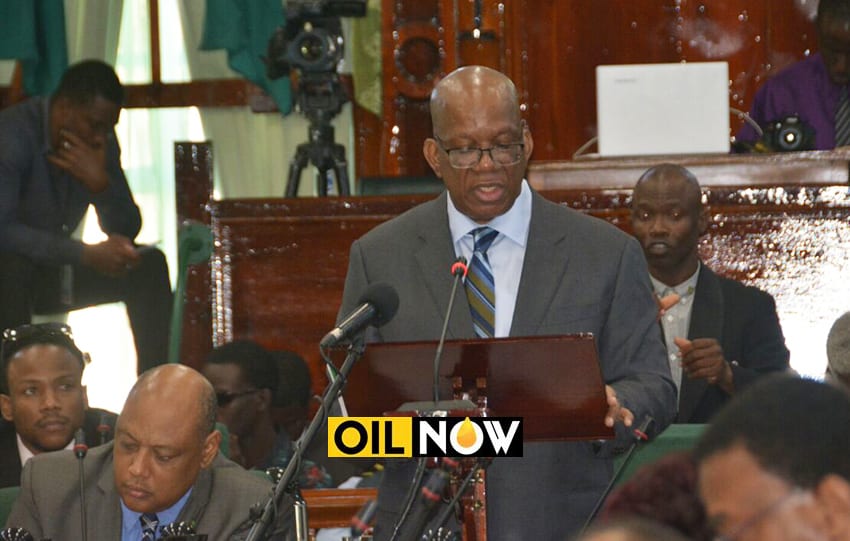Still in its infancy, Guyana’s Oil and Gas Industry is poised to lead Foreign Direct Investment (FDI) in the South American country come next year – a projection made by Finance Minister Winston Jordan, when he today presented the G$267 billion 2018 National Budget at Parliament Building, Georgetown, Guyana.
Presenting the annual projections of revenues and expenditure – the earliest in the nation’s history, Mr. Jordan told the 65 member legislative body, the oil and gas sector is projected to lead in investments come 2018.
According to the minister, although the national current account is expected to weaken, the capital account is anticipated to improve, due to strengthened net medium and long-term capital flows, both private and public sector.
He noted, “…projected foreign direct investment, particularly in the oil and gas sector, is expected to drive the US$145.2 million increase in private sector medium and long term capital.”
Tax receipts from oil and gas support activities, he said, are expected to increase by G$3.2 billion.
The Finance Minister in his presentation did use the occasion to point out the country’s existing resources will soon be supplemented with revenues from the oil and gas sector but cautioned in guarding against squandering these resources.
Mr. Jordan was adamant oil is non-renewable and finite and that “the world is looking for renewables and, one day, in the future, oil will not be the preferred source of energy.”
As such he posited, “When that happens, we must be able to look back and know that the choices we make today, and the immediate years ahead, positioned our sectors and industries to be stronger, more diversified and resilient.”
He told legislatures, “we must diversify our production and income generating base to ensure sustainability…This must be our collective goal to which this budget is directed. Indeed, Budget 2018 contains allocations to strengthen and grow our private sector as well as to improve the efficiency and robustness of our public sector.”
“We – all Guyanese, must have an opportunity to shape the scope and scale of our development priorities, given our existing resources, which are soon to be supplemented by oil revenues,” he added.
Warning against the pitfalls associated with the oil and gas sector, he said, “The literature is replete with examples of natural resource dependent economies being prone to greater income inequality…We must, as a Government, as a Parliament, and as a nation, guard against falling victim to the pitfalls that this new stream of oil resources might bring.”
As such, he informed the House Government will ensure that resources are prioritized for immediate catalytic development needs, stabilization and intergenerational savings.
“Budget 2018 and going forward will see resources being allocated to strengthen systems and institutions to ensure greater accountability and transparency,” he promised.
The Finance Minister signaled the commitment of the Guyana government to implement robust systems for the new oil and gas realities. “As we begin the transition to an oil producing nation, Government must and will implement prudent structural reforms and fiscal safeguards, strengthen our institutions, prioritize the development of our human capacity, and diversify our growth portfolio.”
Oil production will begin in Guyana in 2020.



